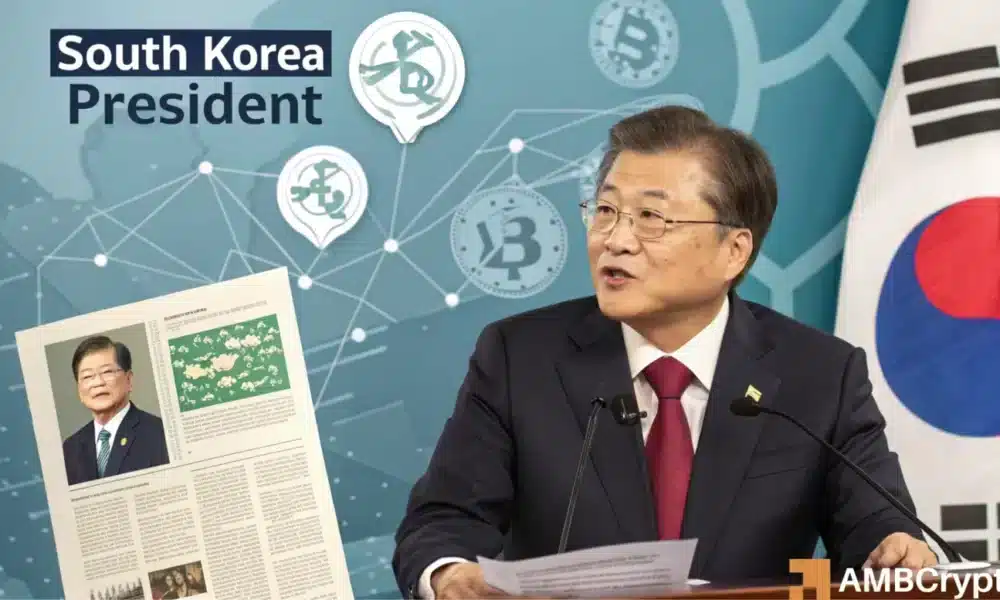- President Lee aims to revive South Korea’s economy with pro-crypto reforms and fiscal stimulus.
- U.S. pro-crypto stance under Trump influences South Korea’s shift toward digital asset integration.
South Korea’s newly elected President Lee Jae-myung wasted no time in addressing the country’s economic concerns, convening his first cabinet meeting just a day after taking office.
His priority?
Reviving a sluggish economy and easing household financial strain, both of which were cornerstones of his campaign.
This followed the dramatic impeachment of former President Yoon Suk Yeol, who faced widespread backlash after attempting to impose martial law.
While Lee’s inauguration speech did not mention crypto directly, his campaign trail told a different story.
In fact, he had made several bold promises around digital assets, signaling that policy shifts may be imminent under his leadership.
President Lee’s vision
That being said, President Lee aims to accelerate South Korea’s digital asset strategy by building on the Democratic Party’s Digital Asset Committee initiatives.
He plans to advance the long-anticipated Digital Asset Basic Act (DABA) and accomplish what his predecessor failed to do.
Additionally, Lee seeks to legalize spot crypto ETFs, currently banned, and enable the National Pension Service to invest in digital assets.
In fact, the Financial Services Commission has begun implementing a phased plan to onboard institutional players even before the election.
Bipartisan backing
Additionally, President Lee Jae-myung has committed to jumpstarting South Korea’s struggling economy by announcing a swift fiscal stimulus exceeding 30 trillion won (approximately $22 billion).
The government responded to significantly lowered growth projections, revised to just 0.8% in May, down from 1.5% earlier this year, with this bold move.
His nominee for Prime Minister, Kim Min-seok, reinforced the urgency, warning that current global challenges could hit harder than the 1997 Asian financial crisis.
Both Lee and his election rival, Kim Moon-soo, expressed strong bipartisan support for these initiatives during the campaign.
Kim Moon-soo said,
“Today, the economy is heading downward and stagnating, which is why I believe it’s much more difficult.”
What’s behind this shift in sentiment?
Needless to say, the evolving stance on cryptocurrency in South Korea reflects a broader shift in political and public sentiment.
This transformation has been evident not only in campaign rhetoric, but also in voter priorities, where digital assets have taken center stage.
For instance, Sangmin Seo, a prominent technologist and head of the Kaia DLT Foundation, which supports the high-performance Kaia blockchain, recently noted,
“This election, Korean politics sees crypto as a narrative to gain voters’ favors, positioning it as another national growth engine besides AI and semiconductors.”
What’s more?
Having said that, Lee’s push may also be influenced by crypto developments abroad.
With Donald Trump back in the U.S. political spotlight and actively promoting crypto, the American stance has turned markedly pro-digital assets.
This dramatic pivot has likely served as a signal to global leaders, including President Lee, that embracing crypto could be a strategic move not only for innovation but also for geopolitical alignment in a rapidly digitizing economy.







